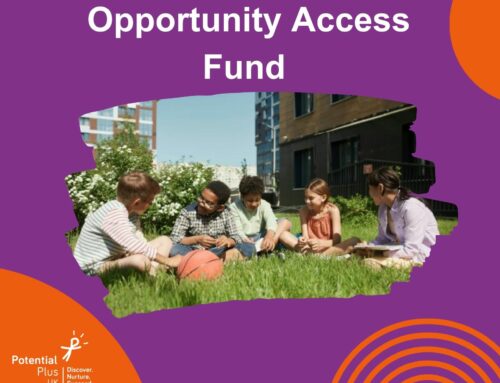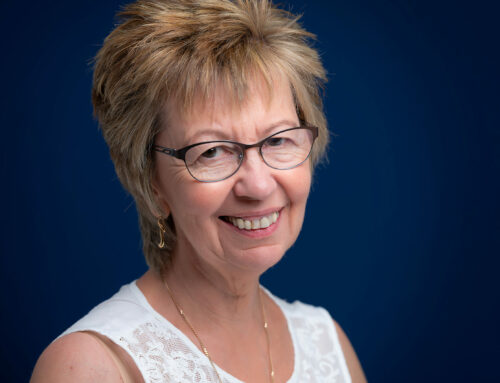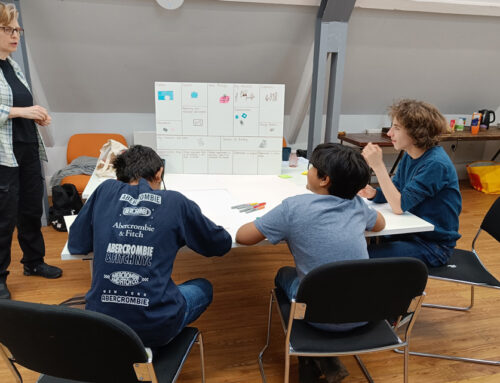At 2 years old, Charlie* already appears to be an outsider. His father contacted us to find out how he could support his bright child.
“I am worried about my 2 year old, Charlie. I’ve recently noticed that he seems different to other children his age we meet at playgroup – whilst most of them are happy to run around and play with the toys, Charlie seems more preoccupied with the adults! He is very chatty and everyone is amazed at his level of understanding, but I think that could be because he is an only child. He does play with the toys, but he seems to want to do different things with them, for instance taking them apart to see how they work!
At home he is already fascinated with books and can read simple sentences. Whilst I love him and enjoy his curiosity about the world, I’m worried he will be seen as weird and not fit in as he gets older. Already the other children seem to not want to play with him. What is wrong with him, and what can I do to help him not grow up to be bullied and ostracised?”
Potential Plus UK's Advice
Charlie’s parent is worried that there is something wrong with him, that he will be seen as weird and not fit in as he grows older. This is a common fear for many parents, whether their child has high ability or not, but for parents of very young children with high learning potential, who see the difference without understanding exactly why he is already being treated as an outsider, learning how to support their child early is especially important.
From what his parent says, it is likely that Charlie has high learning potential (also known as being gifted / having high ability / being more or most able). He is already demonstrating signs of this through his ability to learn more quickly than other children his age, through his speech, his understanding and his reading and it may be noticeable in other ways too. He is demonstrating an inbuilt ability to learn quickly and a natural curiosity which is often noticed in bright children. The fact that he is an only child may mean he has more individual attention than many other children, but it doesn’t account for him being able to learn to read at such a young age or for him taking toys apart to find out how they work. He is displaying several of the common characteristics of high learning potential
While having high learning potential may lead to other challenges in the future, at present his parent is worried most that other children don’t want to play with Charlie, and that he is preoccupied with adults. To understand why he isn’t fitting in we need to look at things from Charlie’s point of view. At the age of 2, he is already talking and understanding very well, he wants to find out how things work and can read simple sentences. It is also likely that he will want to play complex or imaginative games. How many children of a similar age around him are able to comprehend his level of thought and play and how many children of his own age is Charlie going to be interested in playing with? It isn’t likely to be many. At the age of 2, most children are still playing alongside each other, rather than playing with one another. They are just learning how to play together on the same task at the same time. Children of a similar age may find it difficult to join in with his more complex games and so don’t want to play with him or understand his advanced vocabulary. As they get older, his age peers may or may not consider Charlie as an outsider because he is more advanced than most of them. Their attitude will very much depend on the adults around them and the ethos of the environment they are in. This is where parent advocacy comes in.
Parent Advocacy
Without early support in making friends with whom he has things in common and lacking friends in his age-peer group, Charlie could start to feel isolated; this is common in children with high learning potential and can ultimately lead to feeling that they don’t belong anywhere and affect their social and emotional development. It is important that Charlie’s parent helps him to be accepted as he is, wherever he goes. His father needs to be prepared to talk about Charlie, his abilities and his needs to everyone, including close family members or friends. Discussing a child with high ability and why you feel that he is different makes may parents feel uncomfortable – as though you are boasting or a ‘pushy parent’. Charlie’s father also needs to be his advocate in learning environments and clubs that he attends as he gets older, making sure that he is accepted and valued for who he is. Acceptance in early life will enable Charlie to value himself and to have the confidence to deal with potential bullies later on – one of the worries that his parent expressed. Find out more in:
- Webpage: Gifted Advocacy
- Blog: Bullying and High Learning Potential
- Blog: What to Say About Their High Learning Potential
At home, Charlie needs to know that it is alright for him to be himself and to pursue his interests, even if they differ from his peers and seem “weird” for a young child, so that he grows in confidence.
Find Charlie’s Tribe
Charlie needs to find his tribe. It is important for both his social and emotional development that he mixes with children of all ages and in different environments, so that he can discover like-minded peers. His peers don’t have to be children of his own age. Children with high learning potential often get on well with older children, so perhaps he can make friends with children in the extended family or the neighbourhood.
As he gets older, Potential Plus UK events may offer Charlie that opportunity to find his tribe. Keep an eye out on our Events Calendar for in-person or online activities. Also watch out for opportunities for Charlie to play with others – perhaps in special interest groups/clubs where there are children of different ages; uniformed settings like Beavers and Cubs; or even just a mutual interest spotted at the local playground, like Pokémon Go!
Find out more in our blog Building Friendships – Finding Friends When You Have High Learning Potential
and discover more in-depth information about friendship development in our paid-for Parent Webinar Raising a Child: Building Friendships
Supporting Charlie’s Parent
Parenting a child with high learning potential often means that parents need support as well –to find their own “tribe”. People who share the experience of raising a bright child understand the doubts and fears and are able to discuss how they have dealt with it or work with others to find out the best way support a bright child. Support can be found through:
- Potential Plus UK’s online parent Zoom meetups (“It Takes a Village” and “Fireside Chats” are free monthly online meetings for members) See our Events Calendar for more details
- Online in the Potential Plus UK’s members’ area and on our Facebook group Parenting High Potential
- Meeting parents at our in-person events or local meetups.
- If issues arise, eligible members* are entitled to free half-hour calls with our advice service where our advisors can help you to work out how to support children with high learning potential further. Find out more about our advice service at: https://potentialplusuk.org/index.php/families/advice-service/
By discussing Charlie’s abilities and friendships with others who understand, his parent will learn to enjoy Charlie’s view of the world. He will discover that, even if a gifted child’s intensities and interests can seem weird, this is something to celebrate and, by becoming an advocate for Charlie as early as possible, his father will help him to find the friendships and supportive groups that he needs so that Charlie won’t feel like an outsider due to his ability.
*Charlie’s name has been changed. Read about more genuine young people with high learning potential helped by Potential Plus UK in: Family Stories
**eligible membership for free calls includes Family Plus and Family Essential Membership. Other Associates and Non-members are able to take up paid calls with our advice service.
About the Author: Geraldine Glover is Potential Plus UK’s Community Information Coordinator. She is a Chartered Information Professional with a background in editorial work and information science. She is the mother of two children with high learning potential.









